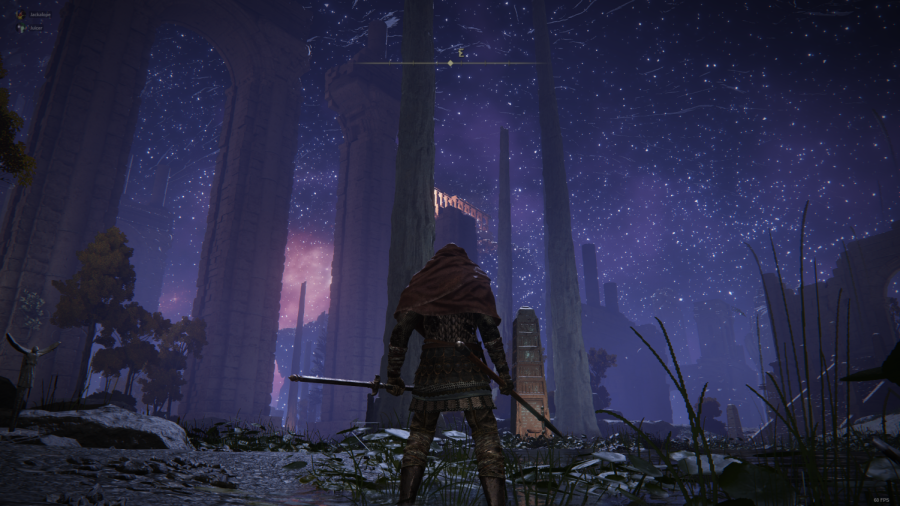‘Elden Ring’ Brings Players Together
“Elden Ring,” developed by FromSoftware, published by Bandai Namco Entertainment (Courtesy Jack Weekly)
April 19, 2022
To put it delicately, “Elden Ring” has a vice grip on anyone that’s dared touch it. The new phenom instantly joined the ranks of the most adored video games of all time. After almost no time at all, “Elden Ring” made a tangible cultural impact on the gaming community. The luminary work of art cut through a world of infinitely diverse media to become a unifying, moon-landing-esque experience for this generation of gamers.
Kindred Souls
According to earlier sales numbers, “Elden Ring” sold over 12 million copies, with likely a few million more well on the way. The game is a massive success by any metric, owed to the most unexpected creative pairing. Directed by legendary game-designer Hidetaka Miyazaki and co-written by Game of Thrones creator George R. R. Martin, the game was destined for greatness.
The beauty of the game comes from its eternal scope. There are voluminous troves of weaving narratives to delve into and seemingly unending lands to explore in the meticulously-crafted fantasy universe. “Elden Ring” borrows ideas from Norse and Greek mythology alike to build a fresh creation that allows players to effortlessly buy into the world.
Not a Mimic
What separates “Elden Ring” from the overly saturated pack of gigantic open-world games is that its expansiveness and diversity carry over into the gameplay. Looking at the statistics on my personal friends list, the average time spent playing “Elden Ring” is over 100 hours. Most of us played the game in completely different ways — we all found different dungeons, fought different bosses, used different weapons and conversed with different characters, yet we were all loving “Elden Ring.”
Becoming a Knight of the Roundtable
Despite the extremely varied experiences offered, there are two key aspects that make the game universally fantastic. First, “Elden Ring” offers an astounding amount of avenues to tackle its unrelenting beasts. The freedom of choice feels fantastic — it makes the reward of taking down a stubborn behemoth truly your accomplishment.
It also has the intended benefit of making the game insanely replayable. Firing up the beginning of the game for the eighth time with a new set of weapons, spells and armors will still feel fresh after hundreds of hours.
Secondly, “Elden Ring” does not have a difficulty setting, the game is tough and will do nothing less than demand your best. However, by design it allows players to choose their difficulty on the fly, not with some trite option in the game settings, but through their actions and choices as a player. For example, if the game is too easy for a veteran of the series, they can simply use weapons that aren’t as strong as others. They could use riskier, possibly even more rewarding tactics. If the game is too difficult, players can use overpowered weapons, call in help from other online players, or try for extra level-ups.
The role-playing in “Elden Ring” doesn’t stop and start with the character creator, it morphs with every little decision players make throughout their journey.








